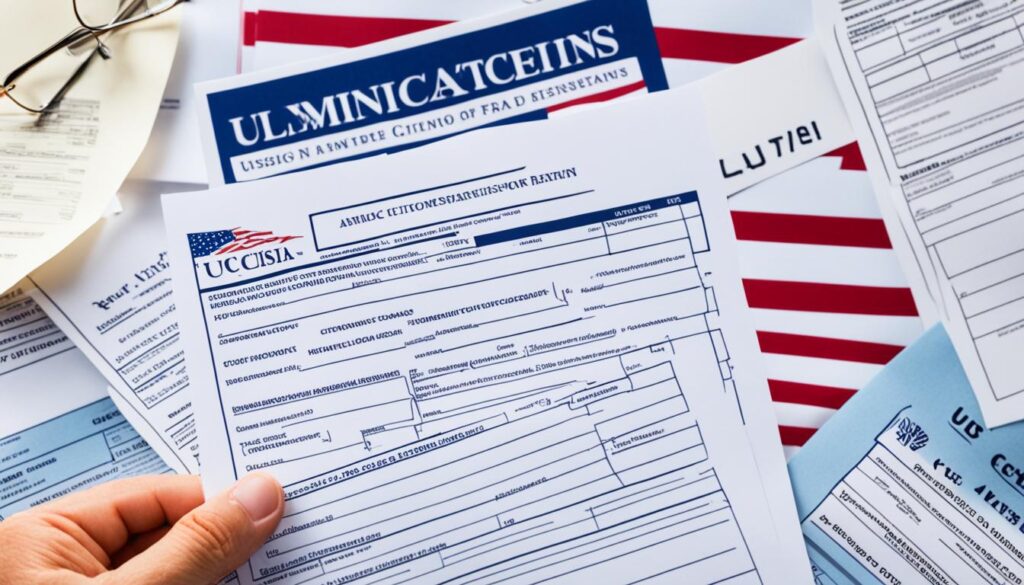Picture this: You’ve been living in the United States for several years now, building a life and contributing to your community. You’ve decided that it’s time to take the next step and become a U.S. citizen. Excited and ready to embark on this journey, you start researching the process and requirements.
Amidst the myriad of information you come across, one question keeps popping up in your mind: Are citizenship fees tax deductible? After all, becoming a citizen involves a significant financial investment, and if there’s a way to offset some of those expenses through tax deductions, it could make a big difference.
As you delve deeper into the topic, you discover that the answer is not as straightforward as you had hoped. The Internal Revenue Service (IRS) does not consider citizenship fees as tax deductible expenses. In other words, you can’t write off the fees you pay for your citizenship application on your tax return.
But don’t despair just yet! While citizenship fees may not be tax deductible, there are other opportunities for tax benefits related to education expenses or other aspects of your life as a U.S. citizen. Understanding these possibilities can help you make the most of your financial situation.
Key Takeaways:
- Citizenship fees are not tax deductible.
- While you can’t deduct the fees, there may be other tax benefits you can explore.
- Consult with a tax professional or use IRS resources to determine eligibility for tax benefits.
Eligibility for Fee Waiver
To qualify for a fee waiver from USCIS, you need to meet certain criteria and provide the necessary documentation. When filing your request, make sure the form you’re submitting is eligible for a fee waiver. Then, demonstrate that you meet one of the following eligibility requirements:
- Currently receiving a means-tested benefit
- Household income at or below 150% of the Federal Poverty Guidelines
- Experiencing financial hardship
USCIS carefully reviews each fee waiver request and makes a decision based on your individual circumstances.
Image:
How to Request a Fee Waiver
Requesting a fee waiver from USCIS is a straightforward process that can help you save money while applying for immigration benefits. To initiate the USCIS fee waiver process, follow these simple steps:
- Complete Form I-912: Request for Fee Waiver or Prepare a Letter
- Gather Documentation to Support Your Request
- Provide All Requested Information
- Include English Translations for Foreign Language Documents
- Sign and Submit Your Request with the Petition or Application
Now let’s take a closer look at each step:
Step 1: Complete Form I-912 or Prepare a Letter
To apply for a fee waiver, you need to fill out Form I-912, Request for Fee Waiver. This form is available on the USCIS website and can be downloaded and printed for free. Alternatively, if you prefer to submit a letter instead of using the form, make sure it includes all the necessary information as specified in the USCIS guidelines.
Step 2: Gather Documentation to Support Your Request
When requesting a fee waiver, you must provide documentation that proves your eligibility. Depending on the basis of your fee waiver request, different types of supporting documents may be required. For example, if you are requesting a waiver based on means-tested benefits, you would need to provide proof of your current enrollment in a qualifying program.
Step 3: Provide All Requested Information
Make sure to carefully read and complete all sections of Form I-912 or your request letter. Double-check for accuracy and ensure that you haven’t omitted any necessary information. Providing complete and accurate information will help avoid delays in the processing of your fee waiver request.
Step 4: Include English Translations for Foreign Language Documents
If any of the supporting documents you submit are in a foreign language, a full English translation must be included. This ensures that USCIS officers can review and understand the content of the documents to properly evaluate your fee waiver request.
Step 5: Sign and Submit your Request
Before submitting your fee waiver request, make sure to sign it. Each individual requesting a fee waiver must sign their own request. Once signed, submit your fee waiver request along with the petition or application for which the fee is being waived. It’s important to note that the fee waiver request should be sent separately from any payment.
By following these steps, you can confidently request a fee waiver from USCIS, saving you money and allowing you to proceed with your immigration application without the burden of filing fees.

| Basis of Eligibility | Required Documentation |
|---|---|
| Means-Tested Benefits | Proof of current enrollment in a qualifying program |
| Income at or Below 150% of the Federal Poverty Guidelines | Income tax return, recent pay stubs, or other proof of income |
| Financial Hardship | Letter explaining the financial hardship and supporting documentation |
Source: USCIS fee waiver guidelines
Reduced Fees for Naturalization Applications
In addition to fee waivers, the United States Citizenship and Immigration Services (USCIS) offers a reduced fee for Form N-400, Application for Naturalization. This reduced fee is available to individuals who meet specific income criteria and allows them to save on the cost of their naturalization application.
To be eligible for the reduced fee, applicants must demonstrate that their documented annual household income is greater than 150% but not more than 200% of the Federal Poverty Guidelines. This provides an opportunity for individuals with moderate incomes to pursue citizenship at a more affordable rate.
Unlike a fee waiver, which exempts applicants from paying the filing fees entirely, the reduced fee still requires a payment. For Form N-400, the reduced fee is $320. In addition to the reduced fee, applicants must also pay the biometrics fee of $85.
If you meet the income criteria for the reduced fee, you can take advantage of this opportunity to pursue naturalization at a more affordable cost. The reduced fee for Form N-400 not only allows you to save money but also takes into account your financial circumstances, making the naturalization process more accessible.
Benefits of Reduced Fees
The reduced fee for naturalization applications provides several benefits:
- Financial relief: By paying a reduced fee, you can reduce the financial burden of the naturalization application process.
- Accessibility: The reduced fee allows individuals with moderate incomes to pursue citizenship without excessive financial strain.
- Inclusivity: By offering reduced fees, USCIS promotes inclusivity and ensures that the naturalization process is accessible to a wide range of individuals.
By taking advantage of the reduced fee for naturalization applications, you can save money while fulfilling your dream of becoming a U.S. citizen.
Check out the table below for a visual breakdown of the reduced fee for Form N-400:
| Application Type | Filing Fee | Biometrics Fee | Total Fee |
|---|---|---|---|
| Reduced Fee | $320 | $85 | $405 |
Requesting a Reduced Fee for Naturalization Applications
To request a reduced fee for your Form N-400 application for naturalization, you will need to complete Form I-942, Request for Reduced Fee. This form allows you to apply for a lower fee based on your household income. To ensure a smooth processing of your request, make sure to provide all the requested information and documentation.
If any of your documentation is in a foreign language, a full English translation is required. It’s important to note that each person requesting a reduced fee must sign the request. Additionally, the completed reduced fee request should be sent alongside your Form N-400 application.
Curious about whether you meet the income guidelines for reduced fees? You can check the current eligibility levels on Form I-942P, Income Guidelines for Reduced Fees. The income guidelines outline the documented annual household income thresholds for eligibility.

| Documentation to Include with Form I-942: |
|---|
| 1. Completed Form I-942 |
| 2. Signed reduced fee request |
| 3. Documentation of household income |
| 4. Full English translation of foreign language documents |
By following the steps and providing the necessary information and documentation, you can successfully request a reduced fee for your naturalization application. Take advantage of the opportunity to lower the financial burden of the naturalization process while working towards achieving your goal of becoming a U.S. citizen.
Determining Eligibility for Tax Benefits on Education Expenses
While citizenship fees may not be tax deductible, there is still the possibility of benefiting from tax deductions related to education expenses. The Internal Revenue Service (IRS) offers a helpful tool to determine if your education expenses qualify for a tax benefit.
When assessing eligibility for tax benefits on education expenses, the IRS takes various factors into consideration. These factors can include your filing status, enrollment status, adjusted gross income, who paid the expenses, and the timing of the expenses. By considering these variables, the IRS aims to determine if you are eligible for deductions related to education expenses.
In order to ensure that you understand your eligibility for tax benefits on education expenses, it is highly recommended that you consult with a qualified tax professional or utilize the IRS tool. This will help you accurately determine if you meet the requirements for tax deductions on education expenses.








